Vinyl: turning tables on turntables
With vinyl sales smashing records yet again in 2019, I explore how the Coronavirus pandemic will affect the the sales of physical music format as lockdown eases

"There will be no record sales by the end of 2020" predicted Oasis guitarist and songwriter Noel Gallagher back in 2015. By this point in time, vinyl sales were at the highest since 1995, with 1.3 million sales of records. However, some saw the music buyer's growing obsession with the format as a phase that would quickly disappear.
Yet as times have changed and trends have come and gone, the love for records has continued, with over 4 million vinyl copies of albums being sold consecutively for the past 3 years. With new artists selling their material in this format, there is hope that vinyl is here to stay as a popular form of physical music.
However, with the coronavirus pandemic resulting in the temporary closure of record stores, reported falls in the purchase of physical music and the continued move towards paid subscriptions to streaming services, what does the future hold for vinyl. as the country emerges out of lockdown?
Photo credit: Mark S.
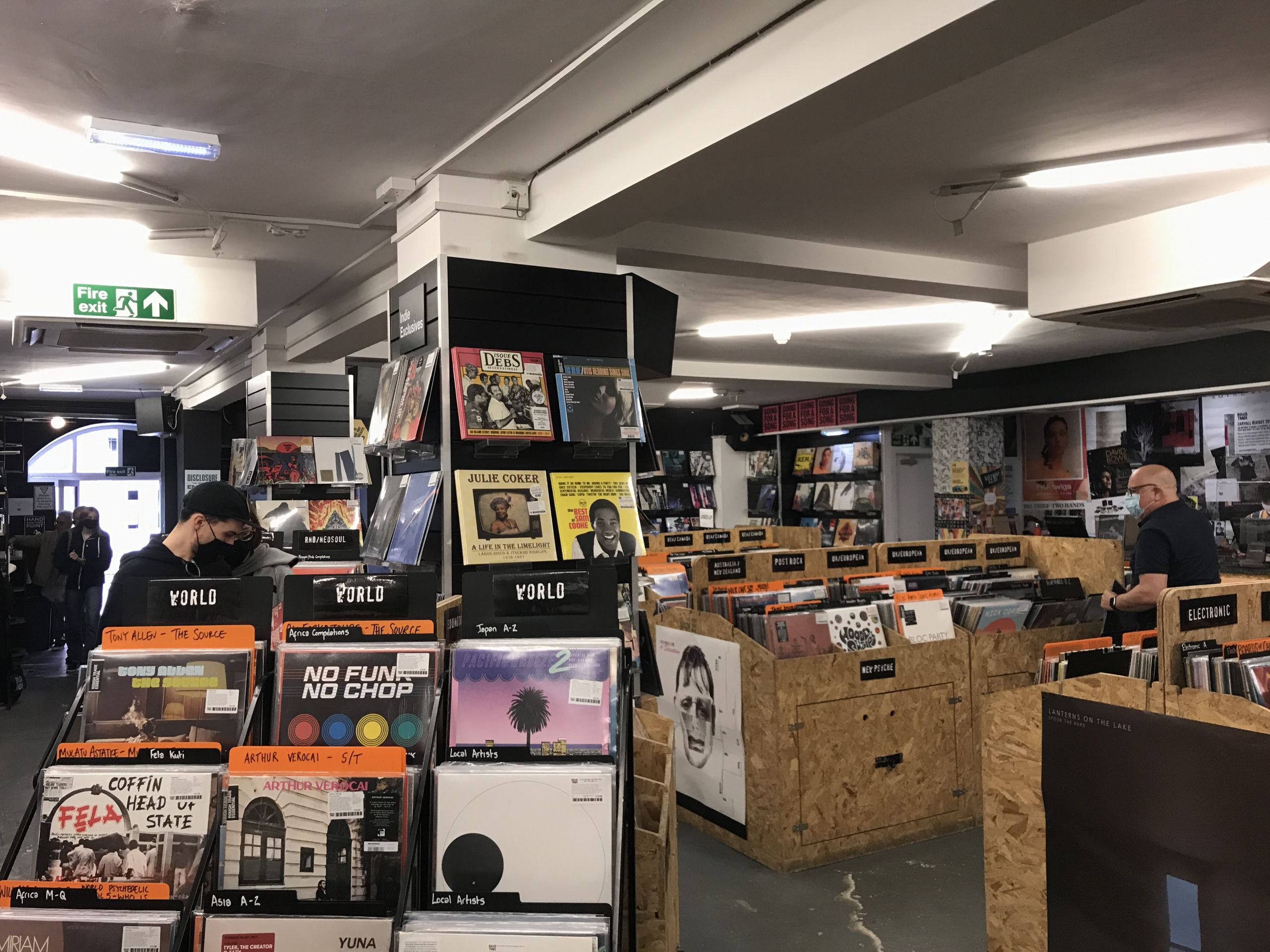

WHY VINYL?
1986 marked the end of an era for music collectors. It was in this year that the CD, only introduced in the UK four years earlier, outsold vinyl record for the first time.
Records had been the cornerstone for physical music, yet as technology developed in the 1970s and 1980s, the vinyl became an inconvenience for many, with music being readily available on Compact Disc.
As time went on, CDs would be replaced by digital copies through purchasing songs on iTunes, then streaming. However, in recent years, the want for vinyl has come full circle, with sales increasing by 2000% in the last decade, reaching 4.3 million sales last year.

People are also looking for new artists on vinyl, with many of them topping the vinyl charts. Acts such as The 1975, Harry Styles and Lady Gaga have all released albums during lockdown and have climbed into the top-selling vinyls of the year.
2019 not only saw another increase in the number of vinyl records sold, but new artists emerging onto the scene have made it into the best-selling records of the year, including Lewis Capaldi and Sam Fender, who appear alongside the Beatles, Fleetwood Mac and Queen.
It's hard to argue that the revival did not happen, and with 2019 being the strongest year for vinyl in the 21st century, it didn't look like the vinyl industry would struggle in 2020.
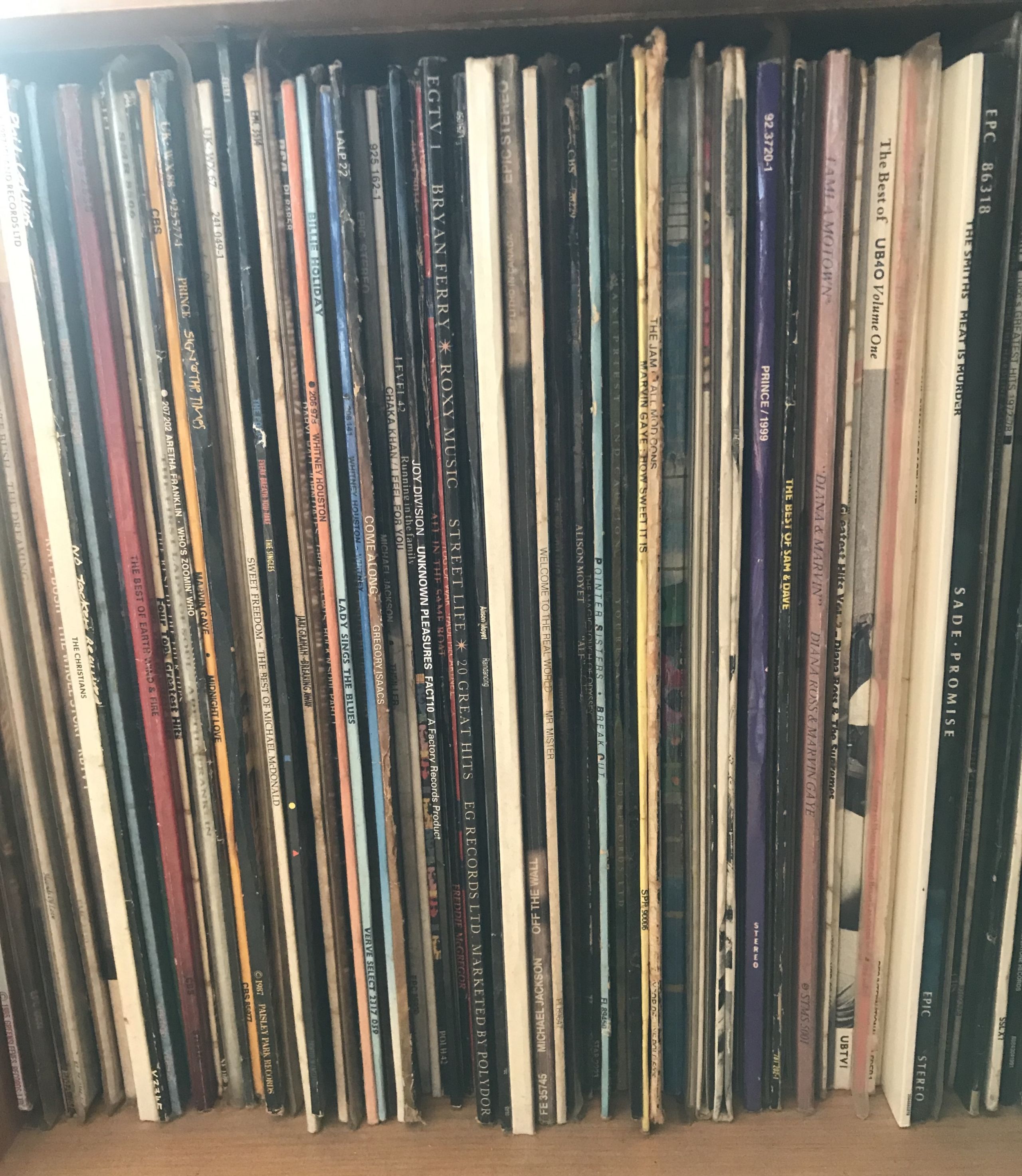
So what is it about vinyl that is so appealing?
Whether it's the scratch of the needle, the feeling of ownership over the music, or just the sense of nostalgia; there are many reasons for why people still buy records in the digital age.
Josh Hart, 21, started collecting vinyl three years ago, after trawling through his dad's record collection from the 1970s and 80s.
"I think it's the beauty of physical music. It's hard to explain what that is but to hold music and to have it is just so cool"
Like many of a similar age, Josh has spent his teenage years seeing vinyl return, with more artists releasing their material on record, selling them online and at gigs. Millennials and those between 35 and 45 are the ages which are driving the revival; all with their different reasons for doing so.
For Josh, it's the physical element which drives his passion for the format.
"It's like a blast from the past, and now I buy them because I think, if I buy an album on vinyl, you have much more of a connection to it [the music] than you do if you stream it."
Streaming figures have risen by a dramatic amount in the past ten years, with subscriptions for Spotify currently standing at 138 million.However, for collectors like Josh, streaming does not provide the experience that he and others want when listening to music.
Despite collecting vinyl, both old and new, for a number of years; Josh says that it is hard to pin down why he has such an affinity for vinyl compared to any other form of physical music.
"I think it's the beauty of physical music. It's hard to explain what that is but to hold music and to have it is just so cool. Big cover art, you get the inlets, they do all new vinyls like splatter vinyl. I just love vinyl and it's quite hard to explain why."

Vinyl collector Josh Hart explains why he prefers to buy vinyl compared to any other format
Vinyl collector Josh Hart explains why he prefers to buy vinyl compared to any other format
You've Got Mail
Store owners across the country had to shut their doors as lockdown was introduced, with many only just opening again to return to some form of normal trade. However, the pandemic hasn't stopped collectors buying vinyl, despite stores being closed.
Many people have turned to mail order vinyl to keep themselves entertained during the days indoors, and have been purchasing vinyl throughout the pandemic.
The Official Charts Company helped to push these stores and their online presence. They created an interactive map which showed users their closest independent record stores that offered mail orders during lockdown. This map can be found here.
Tim Burgess, Charlatans frontman and the pioneer behind Twitter's Album Listening Parties, has acknowledged that vinyl deliveries and mail orders have kept the love for vinyl alive for many people.
A quick count up, we have done 384 listening parties since March 23rd pic.twitter.com/U4P95s7Peh
— Tim Burgess (@Tim_Burgess) August 13, 2020
According to an article in the Independent, physical album sales rose above 300,000 in mid-June, which it can be put down to stores moving their trade online and mail order records.
"My relationship with vinyl has probably improved over lockdown"
As artists push back album releases due to Coronavirus and the lack of availability to shop in-stores, there is a possibility that 2020 could be the first year in over a decade that sales of records could drop from the previous year's figures.
However, with more people buying vinyl despite lockdown measures being put in place, does this give some hope to the medium?
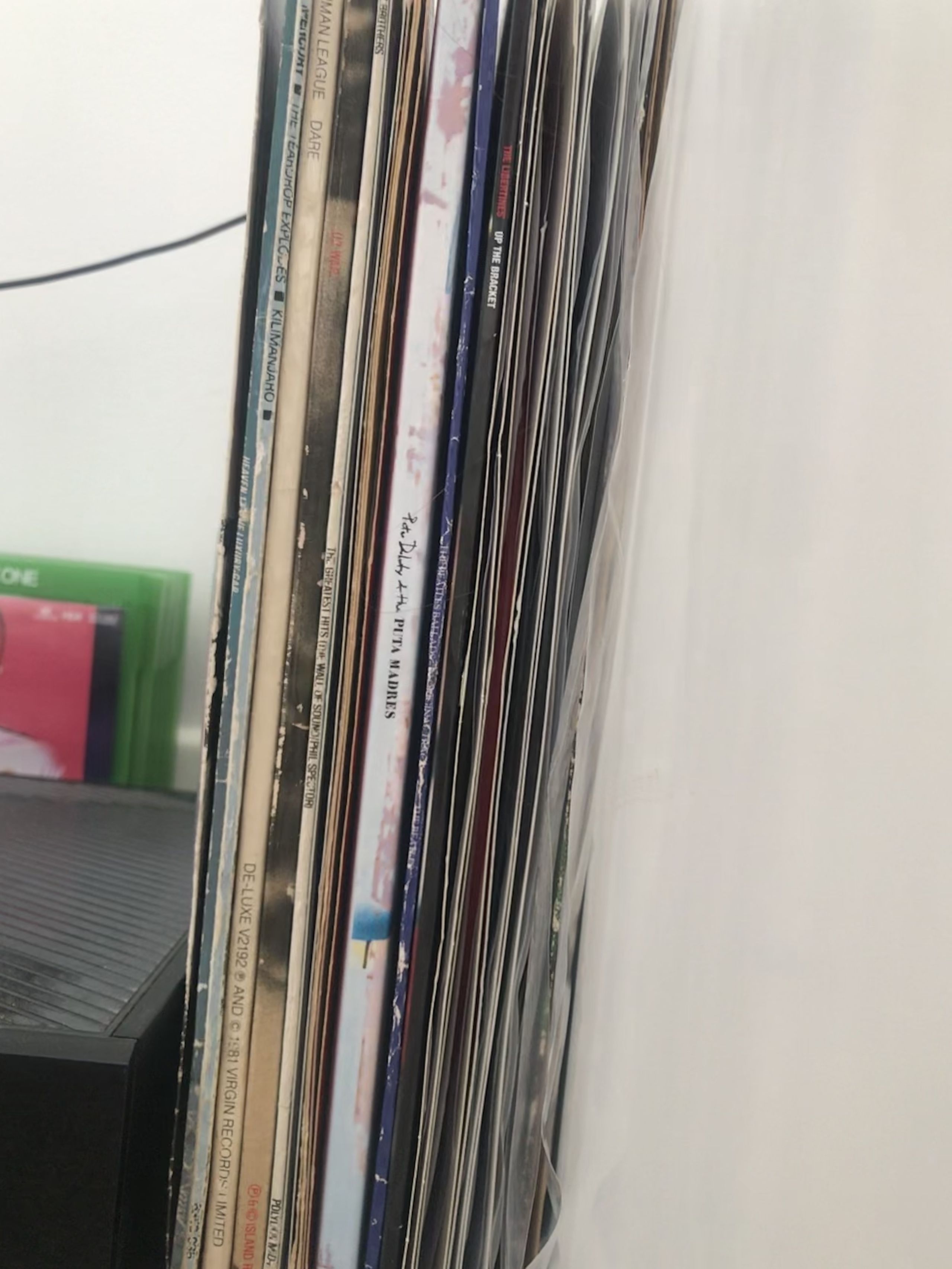
Olly Bowley; who like Josh, has been collecting vinyl for a few years, has said that he has engaged more with his record collection during lockdown compared to before.
Having to spend almost all day indoors for a number of weeks, Olly says that this gave him more time to explore and listen to vinyl. As many stores moved their trade online, Olly and other collectors were able to purchase their vinyl online through independent record stores and large retailers such as Amazon and Discogs.
"My relationship with vinyl has probably improved over lockdown. I've probably bought more vinyl than ever before. I think before lockdown, I didn't really pay much attention to it unless it was something that I specifically wanted."
"I think lockdown has made more people interested in music; not interested in the sense that they didn't like music before...but maybe more involved in music, it's probably more important."
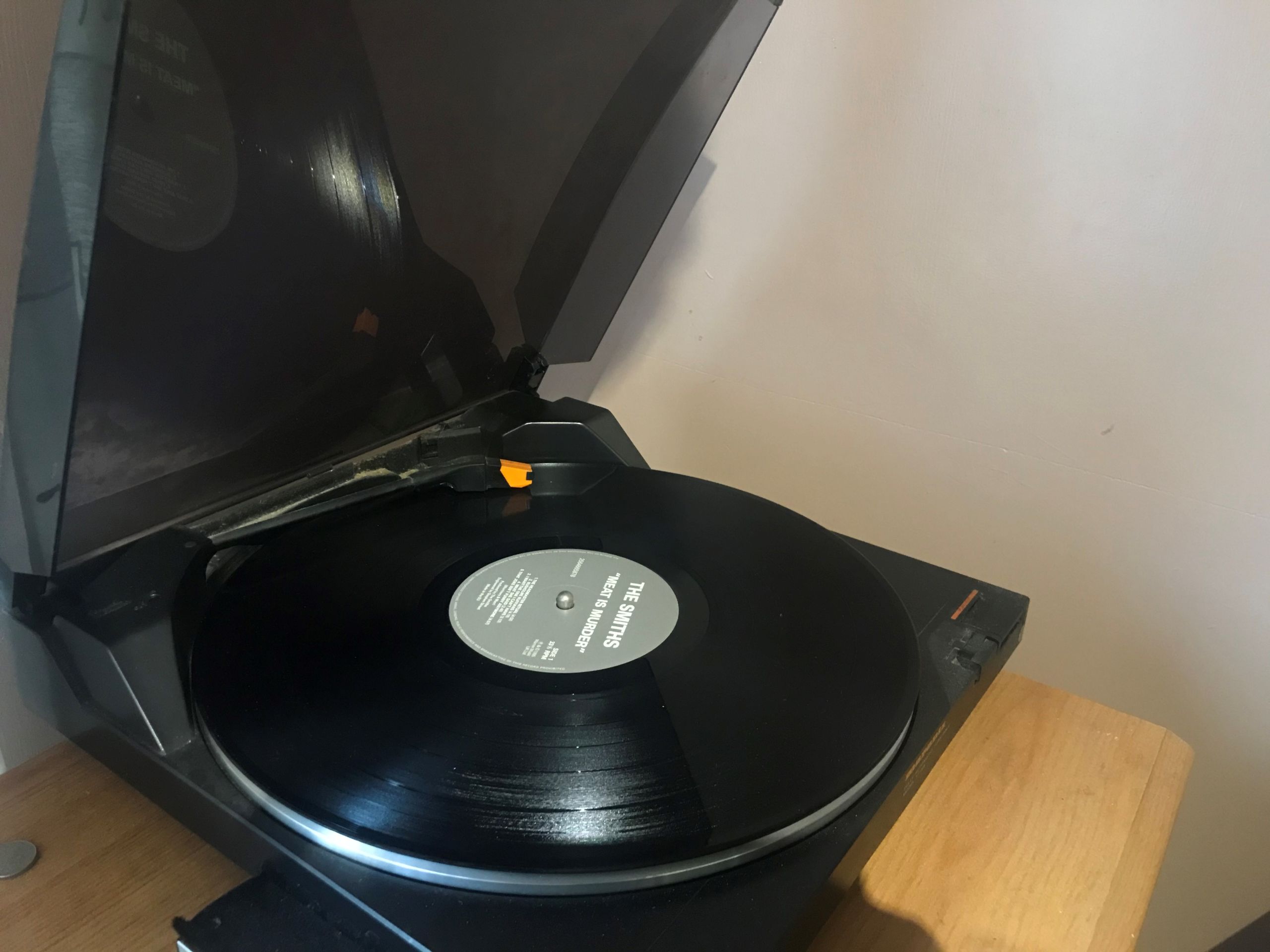
Olly Bowley discusses lockdown and how he believes that it has changed his interaction with vinyl
Olly Bowley discusses lockdown and how he believes that it has changed his interaction with vinyl
"Music as a physical release"
With the live music industry grinding to a halt, how has vinyl helped artists during a time where they cannot gig?
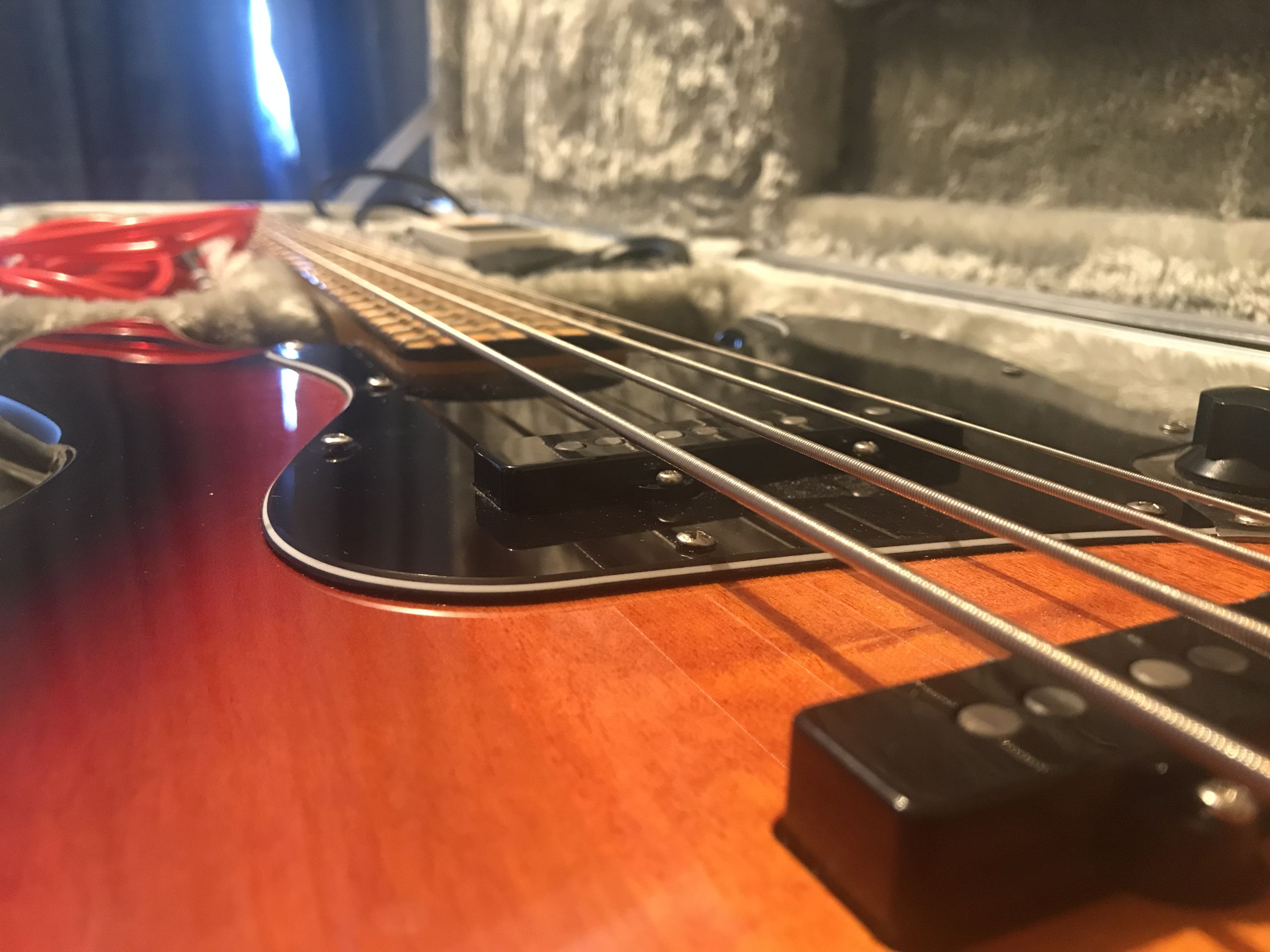
For many artists, the idea of having their music in a physical format such as vinyl is a dream. With more people buying vinyl, many are using vinyl pressing companies to allow for fans to connect with them through buying their music in this way.
Sheffield band Sheafs, who formed in late 2015, released their latest EP 'Vox Pop' on vinyl just three weeks before the UK went into lockdown.
Charlie Eastap, the drummer in the band, explained why Sheafs had released the EP in this format, rather than just put it on streaming platforms or on CDs.
"We've done CDs in the past and they sold really well to be fair but there's something about a vinyl that just seems more credible nowadays than a CD."
"It's (selling vinyl) not a massive money maker, don't get me wrong, we've not made any money off of it but it's nice to know that people actually wanted to buy our music physically rather than just listen to it and consume it through Spotify."
Charlie Eastap from Sheafs explains why the band released their EP 'Vox Pop' on vinyl rather than just on streaming platforms
Photo credit: Lewis Evans

Sheafs had many plans for this year, including support slots for Slow Readers Club at notable venues across the UK. But because of the pandemic, many of these plans have had to be scrapped or moved to alternative dates in 2021.
Therefore, for Sheafs and other bands alike, having vinyl and other merchandise to sell was one of the ways to keep money coming in, and most importantly, stay engaged with fans.
Events such as #saveourvenues and #letthemusicplay have taken place online throughout lockdown in order to ensure that venues, artists and crews are adequately assisted whilst no events can take place.
The government did provide £2bn for the arts industry in July to give those who work in it and the venues that they work in enough support to last throughout the post-lockdown period.
Despite not being able to gig, Charlie has said that the vinyl has helped to get the band's name out there, and lockdown has given them time to reflect and refine their sound.
"It's definitely a way that a lot of artists are putting out (vinyl) to get some money in during this period of where you can't gig, we're all feeling it hard."
"In terms of the vinyl side, we didn't get a massive impact from it ourselves. It's just been a nice time to reflect and see where we wanted to refine our sound more than anything, that's what we've taken from lockdown."
Charlie from Sheafs discusses the impact that lockdown has had on the band
Photo credit: @sheafsband

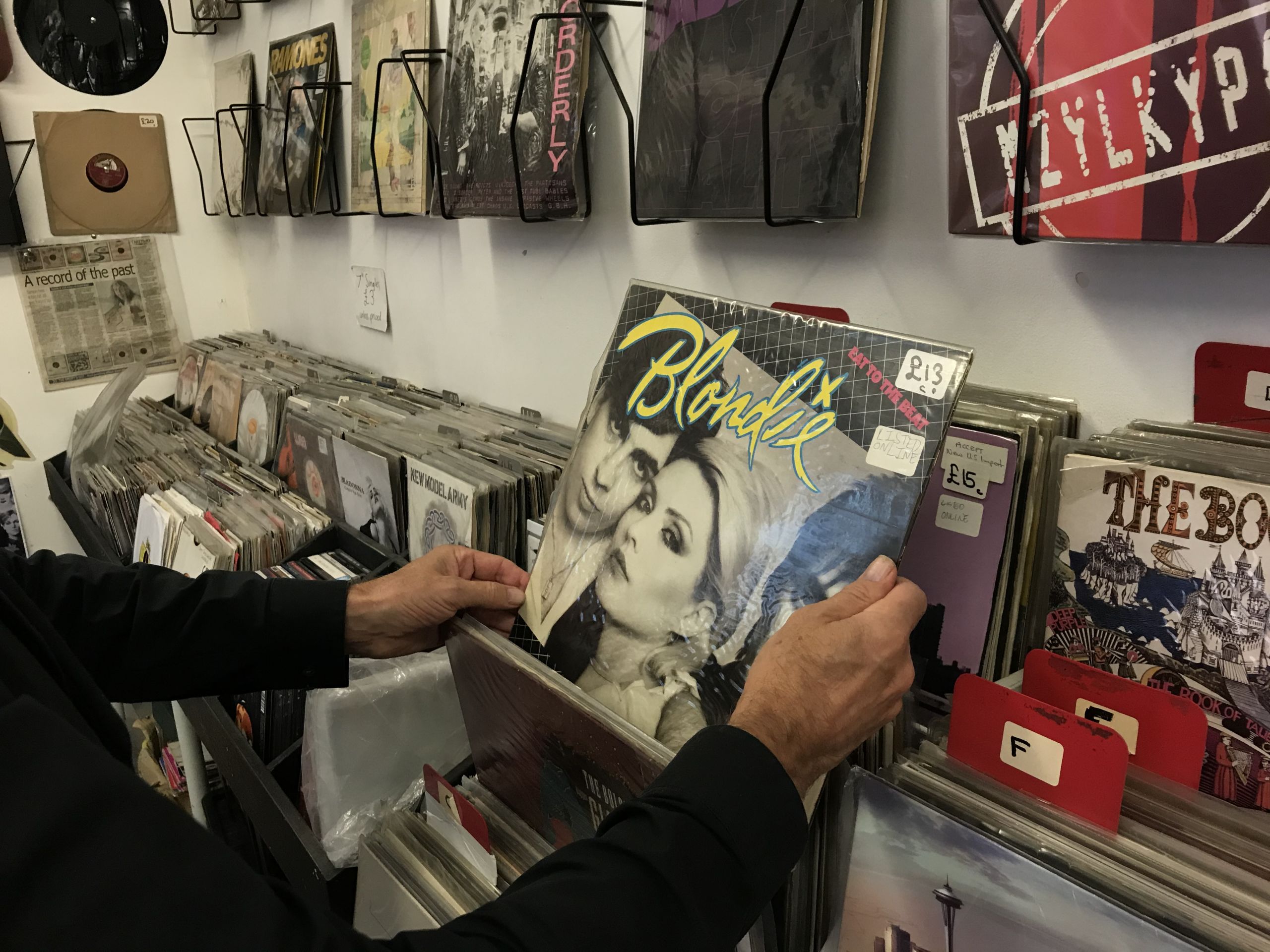
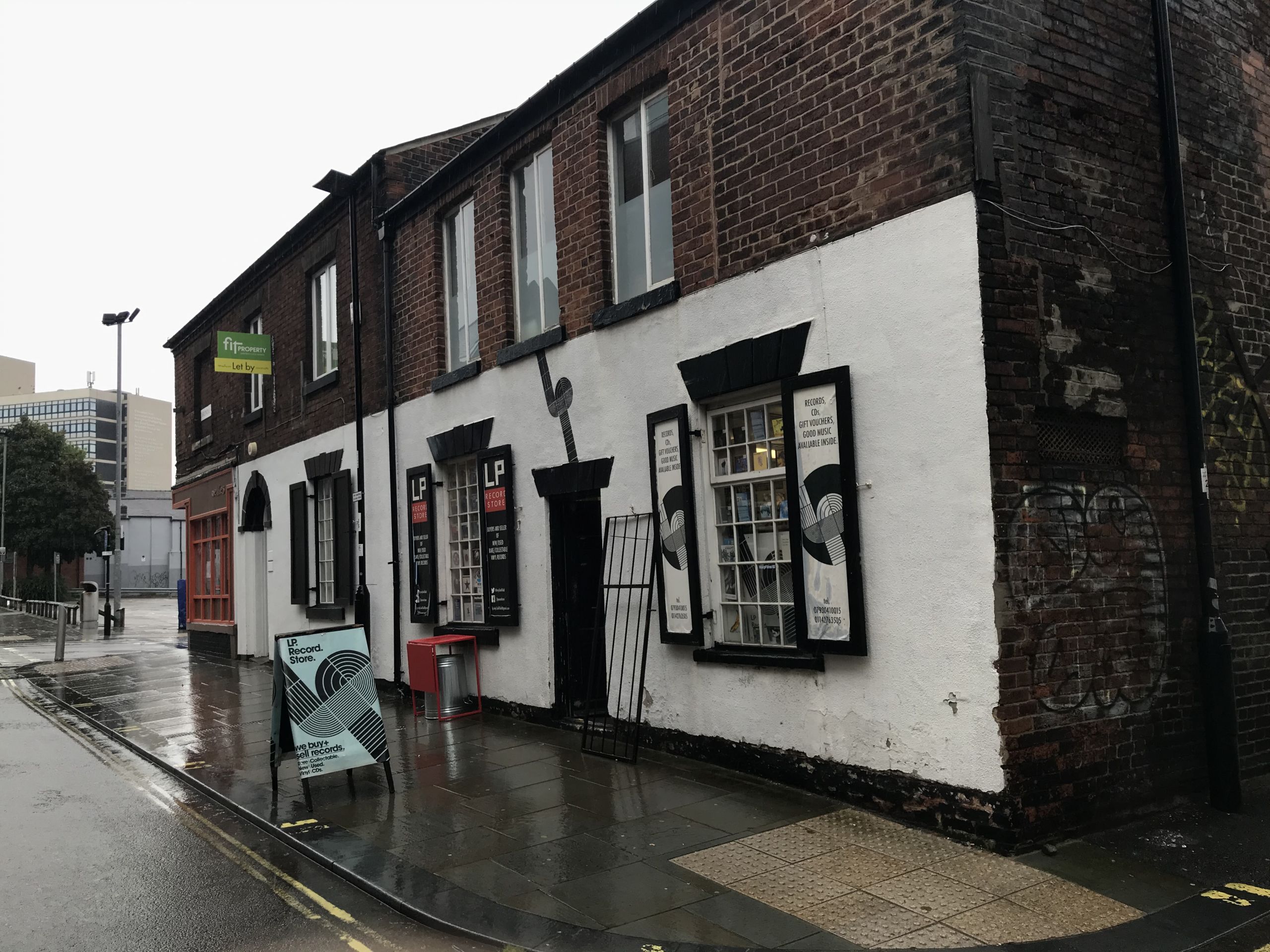

The future of record stores
The 2010s saw a rise in the number of record stores in the UK, following a decade where almost three-quarters of all independent record stores had to close due to changes in the market and customer preferences.
With many record stores holding events including listening parties and in-store gigs, the diverse record store industry began to find its grounding again as people discover their love for physical music consumption.
Marc Richardson is the owner of LP Record Store in Sheffield, and has seen vinyl return to the mainstream in the past decade.
Marc set up his first store in 1980 and has gone on to own others throughout the decades. He opened the LP Record Store in 2008 and has seen vinyl return to the mainstream again.
Despite the growth in streaming and downloading, he noticed that young people and those that grown up surrounded by vinyl felt that they were not getting an authentic with platforms such as iTunes and Spotify in recent years and wanted a new/revisited experience that they could engage with in the digital age.
"People just got bored of downloading because you didn't particularly possess anything at all. You get your artwork when you download it but so what? Its's artwork at your computer and you listen to the tracks and there's just nothing physically there to actually own."
Marc Rico explains why he believes the vinyl revival has taken place

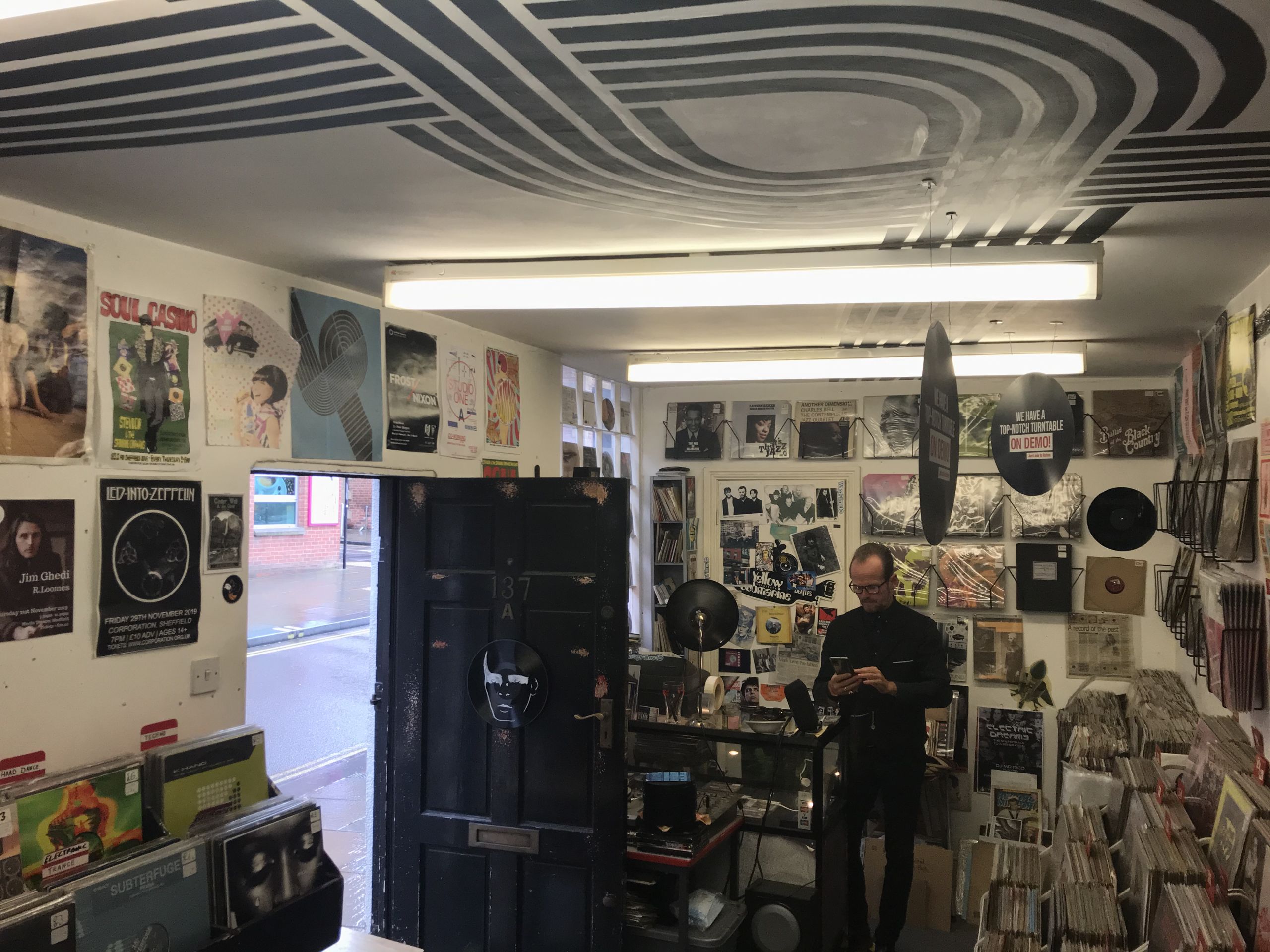
As many businesses begin to close their stores across the UK, there was a worry that the independent record stores which had risen from the ashes in the late 2000s and 2010s would be following the same route as lockdown measures were lifted.
With high street stores moving their trade online, there is concern that there will be a reduction in the number of record stores that people are able to visit, and would therefore have a detrimental effect upon the industry.
Also, with the recession that has gripped the UK as the country comes out of lockdown, people are not going to be spending as much disposable income compared to before the pandemic.
Marc has noticed that despite shops and stores reopening in recent weeks, customers are still anxious to return to shopping in city centres.
"I went in yesterday and we didn't open to the public...but I looked up and down the street and there was nobody around at all. It was like if you walked down there on a Christmas Eve or a Christmas Day, there was not a soul in sight."
Although there is some trepidation from the public to return to their former shopping routines, Marc is confident that we will see a return to pre-lockdown business for stores and vinyl retailers despite the initial slow return to normality.
"I think it will trickle back to normal after a period of time where people feel safe enough to go out, walk the streets, go into small record stores."
"It will go back to normal but it'll just take a bit of doing."
Marc discusses how he has managed through lockdown and whether or not vinyl stores will continue after the pandemic
With social distancing in place and a reboot of the industry needed for those as store owners and artists what is in place to get people out into record stores again?
Record Store Day returns
Despite having to move dates for the 2020 edition of Record Store Day, many people have turned out to buy records old, new, rare and limited edition.
Does this show that there is light at the end of the tunnel for vinyl in the UK post-lockdown?

Since the start of the revival back in 2008, Record Store Day has been there to showcase the format and celebrate artists who release their material on vinyl.
RSD takes place every year on every continent apart from Antarctica and record stores open their doors to host artists for in-store shows and the opportunity for collectors to buy limited edition records that have been released exclusively for the day.
However, because of lockdown, there was uncertainty over whether the annual event could take place. The event has had to be postponed twice, after initially being moved from April to June.
With the pandemic affecting all parts of the music industry, RSD could not be more important to reboot the industry after months of hibernation.

After two date changes, the organisers announced that there would be three days on which RSD would take place; 29th August, 26th September and 24th October.
Although there would be no in-store gigs or parties this year, Record Store Day has allowed for a return to some form of normality for record enthusiasts, with bands and acts such as Suede, Bastille and Al Green releasing albums on vinyl for the first time.
Record Store Day helps me feel a bit more secure that I have a job that needs doing."
Social distancing measures have been put in place across all stores, with mask wearing being mandatory and the use of gloves is encouraged to protect people from infection.

The notice outside Rough Trade in Nottingham advising customers of in-store social distancing measures
The notice outside Rough Trade in Nottingham advising customers of in-store social distancing measures


Jono Beard works at Rough Trade in Nottingham, one of the stores that is hosting Record Store Day for the three events across the next couple of months.
The store had been shut for a number of months, relying solely on online orders to keep the business afloat.
Although all the trade for the store was not in person, Jono noticed that sales increased during lockdown, and he believes that it was a solace for many people to cope with social isolation, which allowed for the sales to remain consistent.
"For most people, music is a comfort. When the world is going absolutely crazy, it can be very comforting to buy a new album by someone you love or buy an album you already love but for the first time on vinyl."
Many people showed up for the first instalment of Record Store Day in 29th August, with many stores seeing queues outside their front doors with shoppers eager to get their hands on limited edition pressings of albums.
Reactions like this for events such as Record Store Day have shown that people are still very much invested in buying records, and this reassured Jono that working in a record store is a job that is worthwile, not only to him, but to those who visit Rough Trade.
"There's certainly a worry that in post-lockdown UK, people aren't really going to be wanting to do something frivolous like go into a shop and buy records."
"Having a big day, in fact three big days, like Record Store Day helps me feel a bit more secure that I have a job that needs doing."

Jono Beard explains why Record Store Day 2020 is so important post-lockdown and what it means for himself as an employee of Rough Trade and for vinyl collectors
Jono Beard explains why Record Store Day 2020 is so important post-lockdown and what it means for himself as an employee of Rough Trade and for vinyl collectors
With record stores closing across the country due to lockdown, people not wanting to spend their hard-earned cash and the uncertainty of the music industry as a whole; there were concerns that the growing love of vinyl would quickly disappear, as it did for many people back in the late 1980s.
However, this is far from the case. With people actively engaging with records despite a few months without record stores and gigs, the vinyl industry looks as though it will come back stronger than ever.
Although some artists have had to put back release dates and some record stores are waiting in hope to see pre-lockdown levels of sales, store owners, artists and collectors are confident that this is not the end for the physical music industry.
Although a significant source of income for store owners and artists, this is just a small reason why many want to see it recover post lockdown. Vinyl ownership is now an integral part of a culture that many now identify with. Interaction with pressed pieces of plastic throughout the global pandemic has not only allowed vinyl to survive but also to thrive in a changed society; hopefully for many more years to come.


